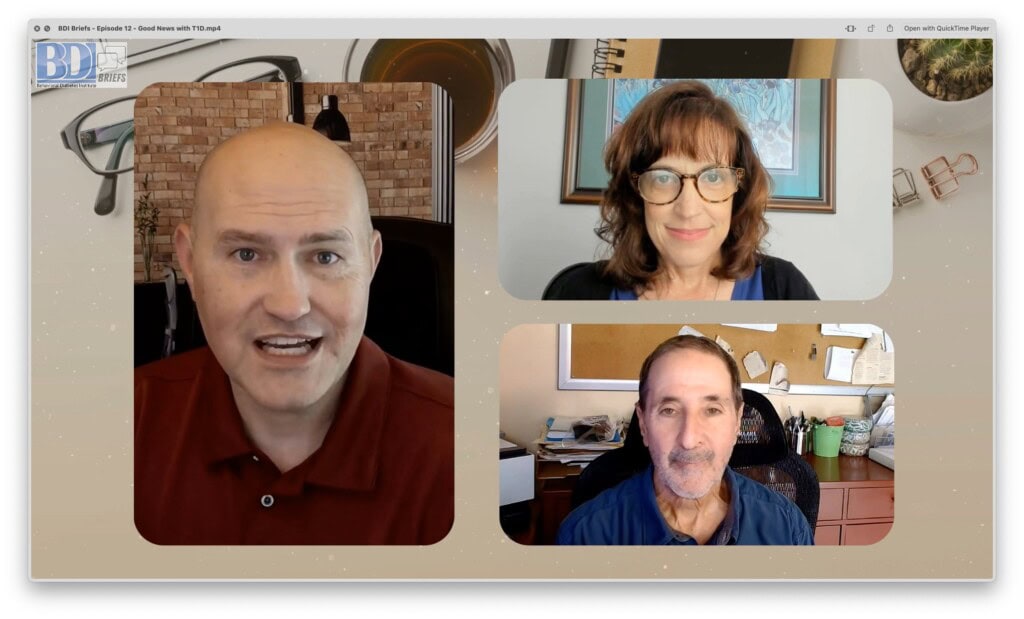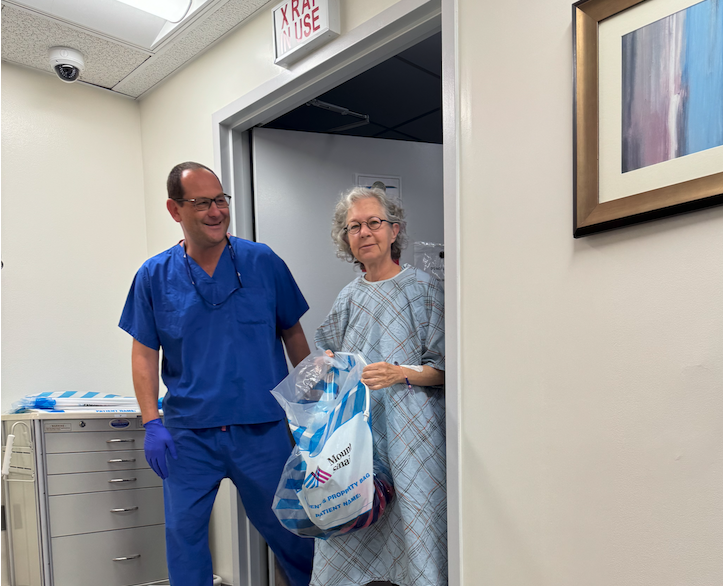Dr. William Polonsky: It’s very clear. The conclusion they say is simply this. The results suggest that type 1 diabetes is no longer a contributory factor in decreased life expectancy owing to improvements in medical care over the three decades. I’m still not quite convinced that’s really true. That’s extraordinary! And clearly, if that’s not true now, we’re getting there. It’s really quite amazing. It’s not type 1 anymore–type 1 isn’t necessarily going to limit your life. Now to be fair, out-of-control diabetes might contribute to that, but type 1 itself, no.
And again, with good care and effort. We can say, with great evidence now, which this supports, you can live a long and healthy life with diabetes. So, I just wanted to highlight this remarkable article on what this means, how this is happening all over the world. And, Susan, I want to know what you think.
Scott, this is going to be important for you, because, well, I know 65 isn’t that close, but you’re going to be getting there. You better be saving your money, because you’re going to have a long and healthy life. What do you guys think of this?
[00:06:06] Scott K. Johnson: Susan, I’ll let you go first. It’s, uh, yeah, this is big.
[00:06:09] Dr. Susan Guzman: I feel all kinds of feelings when I see this. One, is just hugely excited. And again, I feel like we have such an image problem in diabetes where we don’t seem to really celebrate major headlines like this. Even this very, very exciting conclusion was turned into something sounding negative, the burden.
Um, and I, I feel like people living with diabetes, and Scott, I’ll be interested in hearing what you think. Like, we’ve hammered people with scary statistics for so long. And Bill and I have, and, and Scott, I’m sure you know people that, that say, you know, I thought I was supposed to be dead by 30. Um, and just hearing that people get old with type 1 diabetes and that it’s possibly not even a contributory factor in decreased life expectancy, I just feel like, I imagine showing this to, to the people I work with and having them be emotional about it, um, and I wish we could talk about good news in a way that’s, that’s empowering, engaging, respectful, instead of we’re giving this good news with the title of the burden of type 1 diabetes.
[00:07:26] Dr. William Polonsky: Well, I want to give the authors credit, credit though, because if you look at their conclusion, you’re It’s certainly not negative. And once you know the problem continues, the burden on the healthcare system is going to be growing. That is likely to be true, simply because people are going to need care ongoing.
But to be fair to the authors, that’s a remarkably positive conclusion. I was awfully glad to see.
[00:07:46] Dr. Susan Guzman: Yeah. Right.
[00:07:47] Dr. William Polonsky: Scott, what about you?
[00:07:49] Scott K. Johnson: I mean, when I, I look at this and I feel, I feel very hopeful. You’re right, Susan. We’ve been kind of hammered throughout much of our lives, especially in the early years, decades ago, with scare tactics. And quite frankly, those never worked very well. For me, um, it made me kind of disconnect and, and disengage and kind of shut down.
But it’s, it’s really remarkable just how much a glimmer of hope can add to my resiliency to make me wanna continue working on being healthy with diabetes, and, um, pushing through those days that are hard because even. I don’t, you know, no matter what your therapy is, there’s going to be hard days, with diabetes.
But, uh, these glimmers of hope are, they’re very, very helpful in that, in that journey.
[00:08:40] Dr. William Polonsky: I hope this is more than a glimmer. This is big. Um, and again, it’s not just, you know, here, it’s, this is happening all over the world. I should add one thing I didn’t mention about this study, and they really get into the weeds here. But they also talk about this other metric called disability-adjusted life years, which we also see in this global population, has also dropped over this 30 year period.
And disability-adjusted life years is a fancy way of saying, not only are people with type 1 more likely to live long, long lives, but again, long, healthy lives. In other words, the years living with severe disabilities, right, with being on dialysis, you know, having, losing your vision, that’s beginning to decrease as well as we look in these large, large populations.
That’s just the average, though. That’s not everybody. It doesn’t mean bad things aren’t still happening to folks. But it does mean things are moving in a really positive direction and what isn’t, they weren’t able to take from their data, but we know from other data is that what this means is that one will know one everyone knows watching this now as type one, that again, by engaging with your own diabetes care, you can, you can be one of these folks.
You can hang out with Scott when he is 90 years old and hang out with him and his great-grandchildren, wondering where they’re going be going hiking next. Um, we expect to hear more and more about good news. As, these data, as these continue over the years and we want to do our best to make that possible and even more likely for folks.
[00:10:12] Scott K. Johnson: Very, a very good example of, uh, evidence-based hope, which is, I know, important to me and very important to both of you. Anything else to add, or are we ready to send this one home on a, on such a nice, positive note?
[00:10:26] Dr. William Polonsky: I don’t need to belabor any longer than it is. It’s nice and brief and it gets to the point that we want everybody to know. So I think we’re there, Scott.
[00:10:33] Scott K. Johnson: All right, great. Well, big thanks to everyone watching and of course, as always, thanks to both of you for, um, highlighting some of this hopeful news. It’s, it’s very refreshing, uh, to talk about such positive news and, um, I hope that we can continue our streak for many, many years to come, uh, healthy years with diabetes.
So, thank you and we will see you next time.



